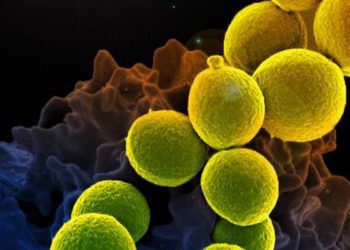Vaccination boosted immunity acquired from previous SARS-CoV-2 infection
1. Two doses of the Pfizer-BioNTech BNT162b2 vaccine were linked to high immediate protection again severe acute respiratory syndrome coronary virus 2 (SARS-CoV02) infection, which waned after 6 months post-immunization.
2. Immunity acquired from infection boosted with subsequent vaccination remained high more than 1 tear after the initial infection.
Evidence Rating Level: 2 (Good)
Study Rundown: Vaccination has been found effective in providing immediate protection against SARS-CoV2 infection, coronavirus disease 2019 (Covid-19) severity, and transmission. The long-term durability of this protection remains uncertain. Furthermore, little is known about the comparative effectiveness between short- and long-interval dosing, as well as the vaccine effectiveness in those who had previously been infected with SARS-CoV-2. The current study sought to investigate the protection level and durability of vaccines among a cohort of asymptomatic healthcare workers who underwent regular polymerase chain-reaction (PCR) testing. Vaccine effectiveness and infection-conferred immunity were assessed by comparing time to PCR-confirmed infection in vaccinated and unvaccinated individuals, stratified by prior SARS-CoV-2 infection history. Two doses of BNT162b2 were found to confer significant immediate protection against SARS-CoV-2 infection for uninfected participants with no difference between dosing schedules. This immunity, however, waned after 6 months. Immunity acquired from the previous infection also waned after 1 year in unvaccinated individuals but persisted at high levels in those who received the vaccine. Overall, this study showed that vaccination offered considerable protection against SARS-CoV-2 infection, which remained especially durable in those previously infected.
Click here to read the study in NEJM
Relevant Reading: Effectiveness of Covid-19 Vaccines over a 9-Month Period in North Carolina
In-Depth [prospective cohort]: This study is an ongoing, multi-center, prospective cohort study involving asymptomatic healthcare workers in the United Kingdom. 35,768 participants were reported in the study publication. Participants underwent biweekly PCR testing for SARS-CoV-2 and monthly antibody testing. For those who were vaccinated with BNT162b2, the dosing interval was labeled as “short” if the second dose was given within 6 weeks of the first dose and “long” if the gap between doses was greater than 6 weeks. Participants underwent serological testing for viral nucleocapsid and spike proteins at baseline to determine a history of previous SARS-CoV-2 infection. Prior to analysis, participants were stratified into those with a history of SARS-CoV02 infection (previously infected) and those without (previously uninfected). Participants were excluded from analysis if this stratification could not be accurately completed or follow-up PCR was not taken, if the previous infection occurred on or after their vaccination, or if the date of the primary infection was not available. Only recipients of either the Pfizer-BioNTech BNT162b2 or the AstraZeneca ChAdOx1 nCoV-19 vaccines were included. The primary outcome was a PCR-confirmed infection, irrespective of symptoms. This outcome was further categorized as a primary infection in previously uninfected participants or reinfection in previously infected participants. Follow-up began on December 7, 2020 (before Covid-19 vaccination was introduced) and continued for 10 months. Unvaccinated participants who had a primary infection during follow-up were reclassified as “previously infected” and at risk for reinfection. 9488 (27%) participants were previously infected at baseline. 95% of participants received two doses, including 78% receiving long-interval BNT162b2, 9% receiving short-interval BNT162b2, and 8% receiving ChAdOx1 nCoV-19. Overall, there were 2747 primary infections and 210 reinfections. For previously uninfected participants who received long-interval BNT162b2, the adjusted vaccine effectiveness was 85% (95% confidence interval [CI], 72 to 92) at 14 to 73 days after the second dose and declined to 51% (95% CI, 23 to 77) at a median of 201 days. The effectiveness of short-interval BNT162b2 was not significantly different. Among the previously uninfected cohort, the adjusted effectiveness of ChAdOx1 nCoV-19 was 58 (95% CI, 23 to 77) at 14 to 73 days following the second dose, which was considerably lower. In previously infected individuals who remained unvaccinated, the risk of reinfection was 86% (95% CI, 81 to 89) lower than the risk of primary infection among unvaccinated participants who were not previously infected. This risk difference decreased to 69% (95% CI, 38 to 84) more than 1 year after the infection. Lastly, within the previously infected cohort, their infection-acquired immunity was boosted by vaccination with combined protection from reinfection of more than 90% when compared to unvaccinated individuals who had previously been infected. This protection also persisted with no waning at more than 1 year after infection or more than 6 months after vaccination. Such results were less optimistic than a recent clinical trial, which was attributed to the emergence of the Delta variant. The main limitations included the limited follow-up period and the specific study population of healthcare workers. In conclusion, the BNT162b2 vaccine conferred high short-term protection from SARS-CoV-2 infection and durable long-term immunity for those who had previously been infected.
Image: PD
©2022 2 Minute Medicine, Inc. All rights reserved. No works may be reproduced without expressed written consent from 2 Minute Medicine, Inc. Inquire about licensing here. No article should be construed as medical advice and is not intended as such by the authors or by 2 Minute Medicine, Inc.







